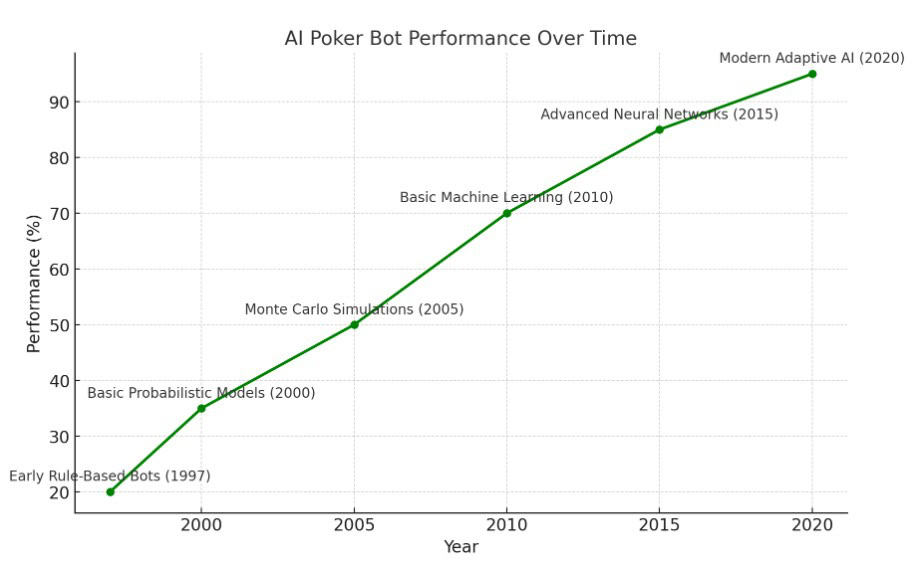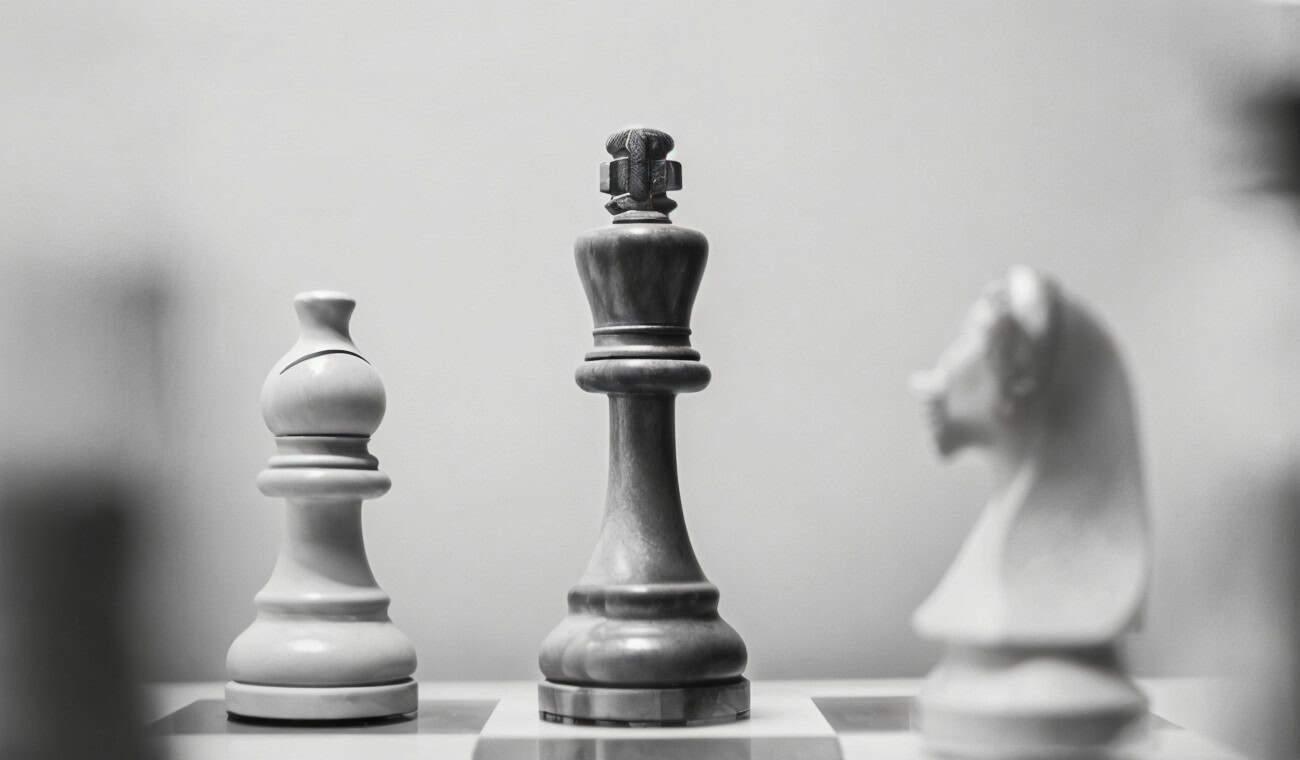
How AI Is revolutionizing poker strategy today
Poker was always about strategy, psychology, and calculated risk. But what happened during the last couple of years or so came as an even more unexpected turn of events: AI entered the poker world and changed the very way the game is played, studied, and mastered. That which once was seemingly left to intuition and gut feelings has now turned into a rather exciting proving ground for advanced AI technology.
But how does AI really change poker strategy, and what does that actually mean for players of any level? Let’s dive deep into how machine learning and game theory are reinventing poker into one that is wiser, sharper, and more competitive than ever.
The rise of AI in poker

It did not happen with poker and AI in one day. Applying game theory, treating poker as a “game of imperfect information,” started to emerge in the early 2010s. Unlike chess, where all the pieces are before a player, in poker, players will be making decisions without complete knowledge of the situation, which makes the game uniquely challenging for independent AI systems.
Things didn’t change until 2017, when finally, the AI bot Libratus from Carnegie Mellon University defeated the elite of pros in No-Limit Texas Hold’em, sending shock waves through both the worlds of AI and poker. Ever since, a full-blown upward spiral-a faster, smarter, and capable-AI intelligence has been afoot. Now, modern bots, among them Pluribus and DeepStack, already outplay even the very best human players, and poker is no longer an exclusively human game.
Key ways AI is changing poker strategy
- Sophisticated opponent profiling:
Arguably, the most radical thing with AI-powered poker bots is the deeply profound profiling it builds on opponents by tracking every move, right from betting patterns down to timing tells, and adjusts strategy in real time on the fly.
Example: It might be overbluffing and identifies the AI bot, which then adapts calls with lighter hands or raises with stronger ones. - Implementing complex scenarios:
By this, AI-powered solvers can run through millions of game scenarios and provide the best mathematically possible move in seconds. It is called the “Game Theory Optimal” way of playing because it minimizes mistakes, showing the mathematical perfection in an AI strategy.
Why it matters: GTO play isn’t about predicting your opponent’s hand – it’s about making the best decision regardless of what they hold, reducing long-term losses. - Real-time decision making:
Unlike their human counterparts, AI bots never go on tilt or wear out for that matter. They remain focused, crunch really huge datasets, and make perfect decisions in the blink of an eye.
Example: A bot playing multiple tables online can simultaneously track every hand, calculate optimal betting ranges, and adjust its play in milliseconds. - Continuous Learning and Improvement:
Advanced poker AIs upgrade their playing skills by re-evaluation of previously played games, identification of mistakes made during the game, and a change in their strategic approach towards subsequent play.
Player’s tip: Utilize AI-enabled tools in post-game analytics to learn a lesson from your mistakes for long-term improvement.
How to use AI for improved game performance: tips for players

Whatever your stake, AI is no longer solely in the domain of the developers or poker scientists: solution tools, training modules, and hand analysis software available today can up anyone’s game. Here’s how:
- AI solvers to develop strategies:
Stuff like PioSOLVER and GTO+ runs countless simulations that help explore optimal strategy for a player. These tools teach concepts like hand range, betting frequency, and board texture.
How to use it: Run postgame simulations about how different plays in the game might have changed its outcome.Practice with challenging scenarios, for example, three-bet pots and post-flop play. - Hand history reviews with AI analysis:
The tracking software PokerTracker and Hold’em Manager allow one to track in detail any hand one has played. The advanced analysis tools will point out common mistakes, such as playing too passively or over-aggressive bluffs.
Pro tip: Use the AI-generated reports to develop a customized action plan that focuses on your biggest weaknesses. - Practice with the AI opponents:
Some online platforms let players practice against AI opponents. These bots simulate realistic scenarios, giving players a safe environment to test strategies before playing for real money.
Best practice: Keep each session focused on a single particular skill, such as bluff-catching or value betting.
AI in live and online poker
While AI has recast online poker completely, it hasn’t because of technological limitations and anti-cheating reasons had that much of an influence on live poker. Professional players utilize these AI-based tools for their pre-game study and post-game review.
Live poker tip: Train offline with AI-powered simulations, then go to the live tournaments where intuition and reading physical tells still have a great deal of value.
Ethical issues of AI in poker
The increased presence of AI in poker creates a number of significant ethical questions. Most major online sites ban real-time bots to preserve fair competition, but there is still wide acceptance in the poker community for AI-driven training tools and solvers.
Ethics in poker playing: Keep the usage of Bot/Solver for practice sessions: it is not okay to use them in a real game.
Stay tuned: Keep yourself updated about the platform policy and only use those websites that have strict anti-bot policies.
AI in the future of poker

But the future of poker with AI is just the opening hand. The better the technology advances, the advanced bots, smarter solvers, and improved training tools will make the mastery of poker easier than ever.
Emerging trends to watch: Examples of voice-activated training applications include AI-powered poker coaches offering real-time tips.
AR poker trainer: Train in virtual poker rooms and receive immediate AI feedback. Next-Generation Solvers The fastest and most accurate solvers which run complex simulations in real time.
Conclusion: replace human poker with AI
Where AI bots have become unbeatable on some platforms, poker is still very much about human psychology and intuition, not to mention pure social interaction. While AI can show you an optimum way to play, it cannot replace that kick of reading the look on an opponent’s face or making a perfect bluff at just the right moment.
If you open yourself to AI as a learning tool, then the possibilities are endless. With the right mindset and tools, one will have the edge over the rest and be able to take their game to the next level, whether you’re playing online or in a live tournament.
